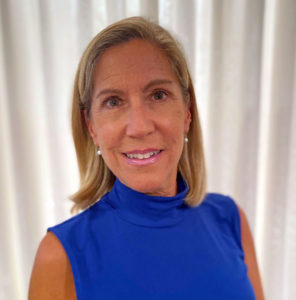 Ed Talk is a biweekly opinion column. The views expressed are solely the author’s.
Ed Talk is a biweekly opinion column. The views expressed are solely the author’s.
Last week, as our nation celebrated Independence Day, protests continued across America for racial equity and justice. The dissonance between the promise of the Declaration of Independence — that all are created equal with the rights of life, liberty, and the pursuit of happiness — and the failure to live up to that promise, has a long history.
In a speech on July 5, 1852, abolitionist Frederick Douglass praised the founding fathers. He also laid bare the simple truth that slaves, as well as free Black people like him, did not have the rights that the framers declared, saying:
I am not included within the pale of this glorious anniversary! Your high independence only reveals the immeasurable distance between us. The blessings in which you, this day, rejoice, are not enjoyed in common. The rich inheritance of justice, liberty, prosperity and independence, bequeathed by your fathers, is shared by you, not by me.
These words, uttered 168 years ago, ring true today.
The “immeasurable distance” between whites and Black people in 1852 persists in the disparities we see in 2020 in education, employment, health, wealth, criminal justice, and more.
To make progress in eliminating these disparities, we must better educate all students about Black history and current events.
In recent comments, Virginia’s Secretary of Education, Atif Qarni, made clear that Virginia has more work to do on this front: “We talk about freedom and justice and spreading democracy throughout the world. I would argue that a lot of those principles came from the struggles of African Americans throughout our history, and that history is not being told in our classrooms.”
Qarny is a member of Virginia’s Commission on African American History Education, which was created to improve the teaching of African American history. The Executive Order creating the Commission also calls for a new high school elective course on African American history, to be offered online through Virtual Virginia starting this fall.
An initial outline of that course includes a comprehensive study of history, literature, the arts, race and racism. This course will benefit the students who choose to take it. In addition, all students should learn Black history by including it across academic disciplines. Students should read Black authors in their language arts classes. They should study the contributions that Black Americans have made to the arts, mathematics, and science in those classes. And their history and government classes should include more focus on the centuries-old struggle for racial equity and justice.
The history of slavery, segregation, and discrimination makes many uncomfortable and ashamed. That not everyone enjoys the same rights and opportunities today is not easy to discuss. Acknowledging this history and our current reality, and discussing these in classrooms, are critical to real learning. Learning can lead to change.
In his 1852 speech, Douglass found hope in the principles of the Declaration of Independence, even while urging the country to acknowledge the injustice of slavery: “The feeling of the nation must be quickened; the conscience of the nation must be roused; the propriety of the nation must be startled; the hypocrisy of the nation must be exposed…”
Decades later, Langston Hughes wrote about patriotism, resilience, and hope in the face of segregation his 1926 poem, which begins, “I, too, sing America.” Though sent “to eat in the kitchen when company comes,” Hughes says that tomorrow, “I’ll be at the table.” And, “They’ll see how beautiful I am and be ashamed.” His poem concludes, “I, too, am America.”
Recognizing that Black history is American history, and teaching it effectively, can help this country make progress in realizing Hughes’ vision of a more equitable and just America.
Abby Raphael served on the Arlington School Board from 2008-2015, including two terms as Chair. She also led the Washington Area Boards of Education for two years. Currently she co-chairs the Project Peace Prevention Committee and Destination 2027 Steering Committee, is a member of the Board of the Arlington YMCA, and works with the Community Progress Network and Second Chance

